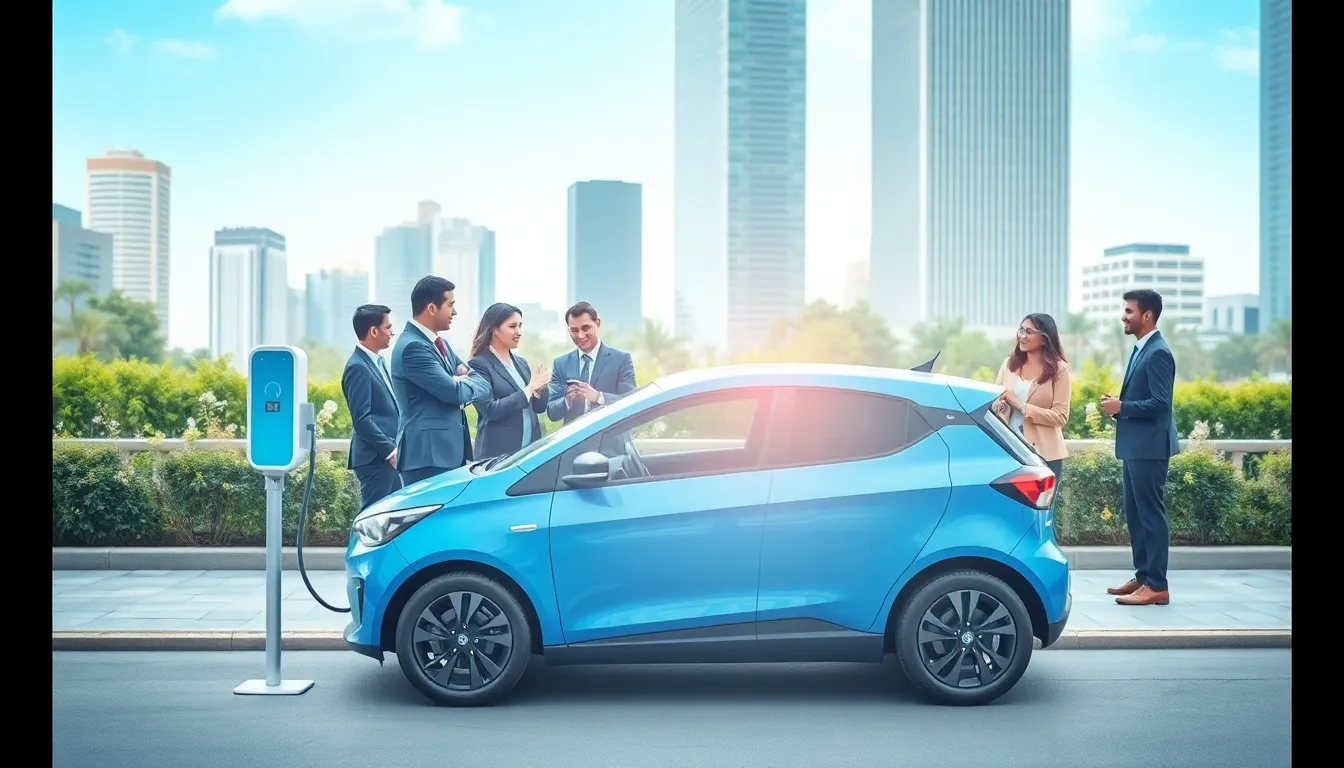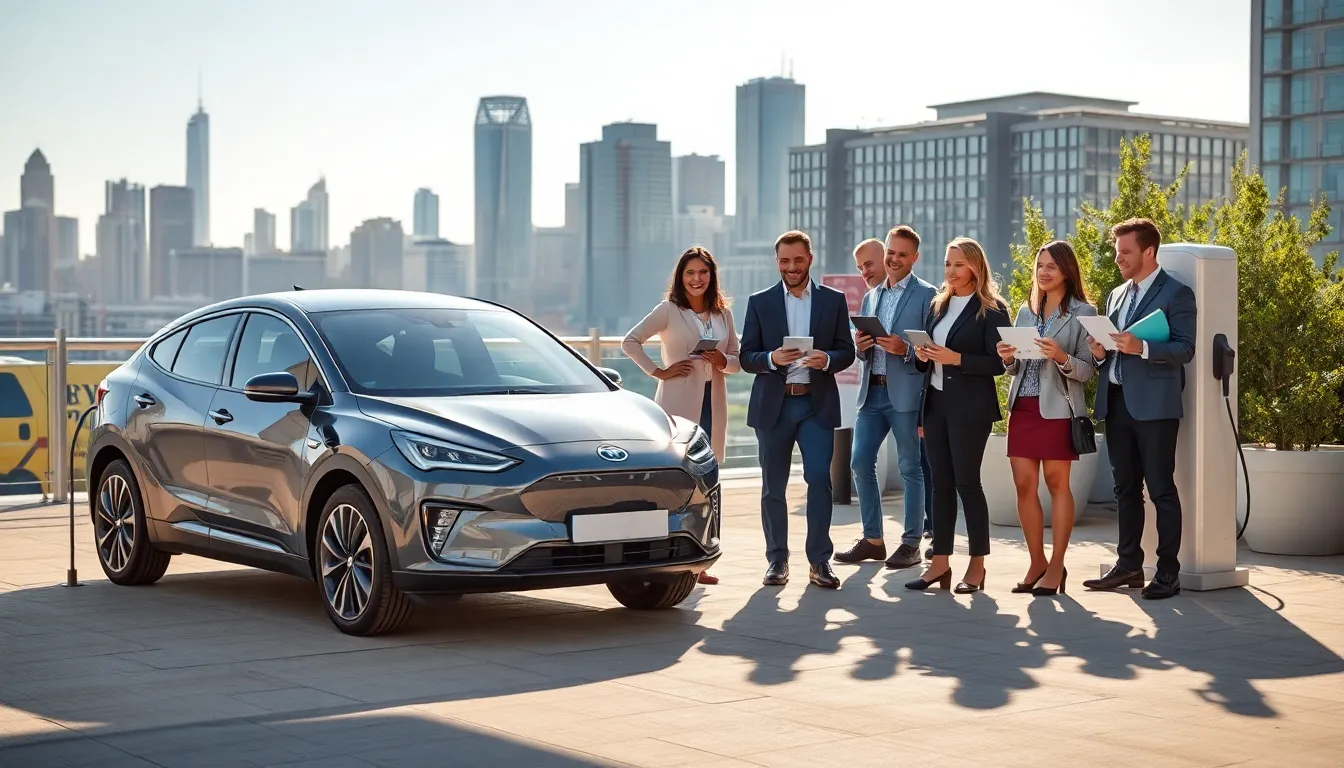Picture this: You’re zooming down the highway in a sleek electric vehicle, the sun shining, and the only sound you hear is the gentle hum of the engine. No gas stations in sight, just a charging station at home. Perfect, right? But let’s pause the dream for a second. Are electric vehicles really worth the investment, or are they just an expensive trend? In this text, we’ll dig deep, crunch some numbers, and explore the environmental benefits, all while keeping it light and informative. Join us on this electrifying journey.
Table of Contents
ToggleUnderstanding Electric Vehicles

Electric vehicles, or EVs as they’re fondly called, represent a significant shift in how we think about transportation. So what are they? At their core, they use electricity stored in batteries to power an electric motor. This means no internal combustion engine, which is a huge plus for reducing local air pollution. The types of electric vehicles vary from fully electric to hybrid vehicles, which blend traditional gas engines with electric power for improved efficiency.
How do they work? EVs use a large battery to store energy, effectively taking away the need to rely on gasoline. No more stops at the pump: it’s all about plugging in, just like charging your phone. This simplicity makes them appealing to many commuters.
Perfect for city driving, EVs experience less wear and tear in stop-and-go traffic due to their instant torque. Many owners report their cars’re quiet, comfy, and boast a new level of tech, including regenerative braking systems that can help recharge the battery while driving.
Cost Analysis of Electric Vehicles
When considering if electric vehicles are worth it, the first thought is often about money. Let’s break down the costs involved.
The Purchase Price: On average, the price of electric vehicles might seem higher compared to traditional cars. But, this initial investment can often be offset over time. Various manufacturers are producing more budget-friendly options without skimping on features. As of 2025, many models can be found for under $30,000, often with similar scopes to gas-guzzlers.
Consider Maintenance: Maintenance costs for EVs are typically lower since they have fewer moving parts. Forget about oil changes and exhaust system repairs. Electric motors require very little in terms of upkeep, which can save owners quite a bit over time.
Charging Costs: Next up is the cost of charging. Charging an electric vehicle at home usually costs less than filling up a gas tank. Depending on local electricity rates, this can result in significant savings. Also, charging stations are multiplying, making them more accessible than ever.
Environmental Impact of Electric Vehicles
Few topics ignite passionate debate like climate change. Electric vehicles don’t just give you a break at the pump, they can also be a game-changer for the environment.
Lower Emissions: EVs produce zero tailpipe emissions, which significantly helps improve air quality, especially in urban areas. Besides, even when considering the emissions from electricity generation, studies show that the overall greenhouse gas emissions from electric vehicles are often drastically lower than those of traditional vehicles.
Battery Production: While it’s all rainbows and sunshine when driving, the environmental impact of producing EV batteries isn’t trivial. Lithium extraction and manufacturing can lead to land degradation and pollution. But, many manufacturers are now focusing on sustainability and recycling, aiming to lessen these impacts.
Performance and Technology Benefits
Electric vehicles aren’t just about saving the planet and the wallet. They can also offer unprecedented performance and cutting-edge technology.
Speed and Handling: EVs provide quick acceleration without the lag you might experience in traditional vehicles. Need to merge onto the highway? Just press the pedal, and you’ll be off like a rocket.
Technology Integration: They’re also packed with new tech features, self-driving capabilities, advanced safety systems, and connectivity options that keep drivers informed and entertained. Imagine a vehicle that can update its software over the air, just like your smartphone seamlessly downloading the latest app.
Quiet and Comfortable Ride: Let’s not forget the driving experience. EVs generate minimal noise and vibrations compared to conventional engines, resulting in a smoother ride. Picture yourself enjoying your favorite podcast without the background noise of a rumbling engine. Sounds nice, doesn’t it?
Incentives and Rebates for Electric Vehicle Buyers
The government is often eager to promote greener technologies, and it shows in the form of various incentives for electric vehicle buyers.
Tax Credits: Many states offer tax credits or rebates to help offset the purchase price of an EV. It’s like a little gift from Uncle Sam for doing your part to save the planet. These credits can range from a few thousand dollars to significant amounts, depending on the model and where you live.
Additional Perks: Beyond tax credits, incentives can also include reduced registration fees, access to carpool lanes, and even lower tolls. It’s essential for potential buyers to stay informed about what’s available because these packages can significantly tip the scale toward purchasing an electric vehicle.
Challenges and Considerations of Electric Vehicles
Even though all the positives, there are still hurdles that potential buyers need to navigate.
Range Anxiety: Perhaps the most notorious challenge EV owners face is range anxiety. The fear of running out of battery often overshadows the electric vehicle experience. But, advancements are pushing the average range on many models to over 300 miles on a single charge, which should ease some concern for most drivers.
Charging Infrastructure: Although charging stations are becoming more common, they may still lack accessibility in some areas. This isn’t a showstopper but worth considering if long road trips are part of your lifestyle.
Initial Costs vs. Long-Term Savings: Cultivating a long-term perspective is essential. Although initial costs are higher, the savings over time through maintenance and fuel efficiency can make EV ownership worthwhile. Doing thorough research can help buyers feel more confident in their choice.



